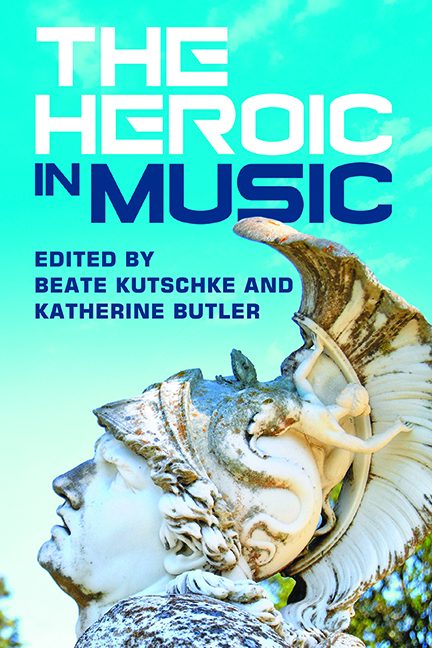Book contents
- Frontmatter
- Contents
- List of Illustrations
- Notes on Contributors
- Introduction
- Part I The Configuration of Heroic Music as a Tool for Shaping Moral and Political Identity
- Part II Music, its Ethics and Politics – Beyond ‘Beethoven Hero’
- Part III Heroic Music and its Moralities in Dictatorships and Post-Heroic Democracies
- Bibliography
- Index
9 - Heroicizing Handel in the Third Reich: Towards the Collapse of Political Propaganda
Published online by Cambridge University Press: 16 July 2022
- Frontmatter
- Contents
- List of Illustrations
- Notes on Contributors
- Introduction
- Part I The Configuration of Heroic Music as a Tool for Shaping Moral and Political Identity
- Part II Music, its Ethics and Politics – Beyond ‘Beethoven Hero’
- Part III Heroic Music and its Moralities in Dictatorships and Post-Heroic Democracies
- Bibliography
- Index
Summary
Handel and the New Germany
Two years after the Nazi takeover, the German state celebrated a special musical anniversary. The year 1935 marked the 350th birthday of Heinrich Schütz as well as the 250th birthdays of Johann Sebastian Bach and George Frideric Handel. The celebrations were organized by the Reichsmusikkammer (the Reich's Music Department) on behalf of the Reichsministeriums für Volksaufklärung und Propaganda (the Reich's Ministry for National Education and Propaganda). The programme they created for the joint celebration of Schütz, Bach, and Handel included an overview of the commemorative events that were to take place in twenty-one German cities. The series of events began in Halle (the city of Handel's birth), where the celebrations were held between 22 and 24 February. The festivities were accompanied by a flood of public announcements explaining the life and work of the honoured composer and illustrating Handel's present significance. A collection of texts that appeared in Halle as a special edition of the journal Deutsche Mitte included a preface by Heinz Ihlert, the secretary of the Reichsmusikkammer. Several other contributions discussed the significance of this composer for the people of the Third Reich. Friedrich W. Herzog, a consultant for music cultivation in the Reichsamtsleitung (the Reich's Management Department) of the Nazi Culture Commune (NS-Kulturgemeinde), contributed one such article entitled Händel und das neue Deutschland. Herzog wrote:
Tradition that claims to be vitally effective manifests itself in the belief of the formative power of the past. The significance of a heritage is therefore not to be judged by the influences and fashions of an era that is now long faded away; instead it is to be judged solely by the question of what an artist and his work means for the present. Therefore, the unconditional integration of an artistic phenomenon of the past into the cultural activities of our time cannot be considered without a positive answer to this question. This is the pre-condition of a clear and obligatory orientation toward the ideological principles of the new Germany. The unique heroism of George Frideric Handel's image as creator complies with the heroic attitude of völkisch character in a way that the distance of centuries seems to be nullified… Handel's monumental choral style – was ever a more powerful song of freedom written than ‘Judas Maccabaeus’?
- Type
- Chapter
- Information
- The Heroic in Music , pp. 161 - 184Publisher: Boydell & BrewerPrint publication year: 2022



